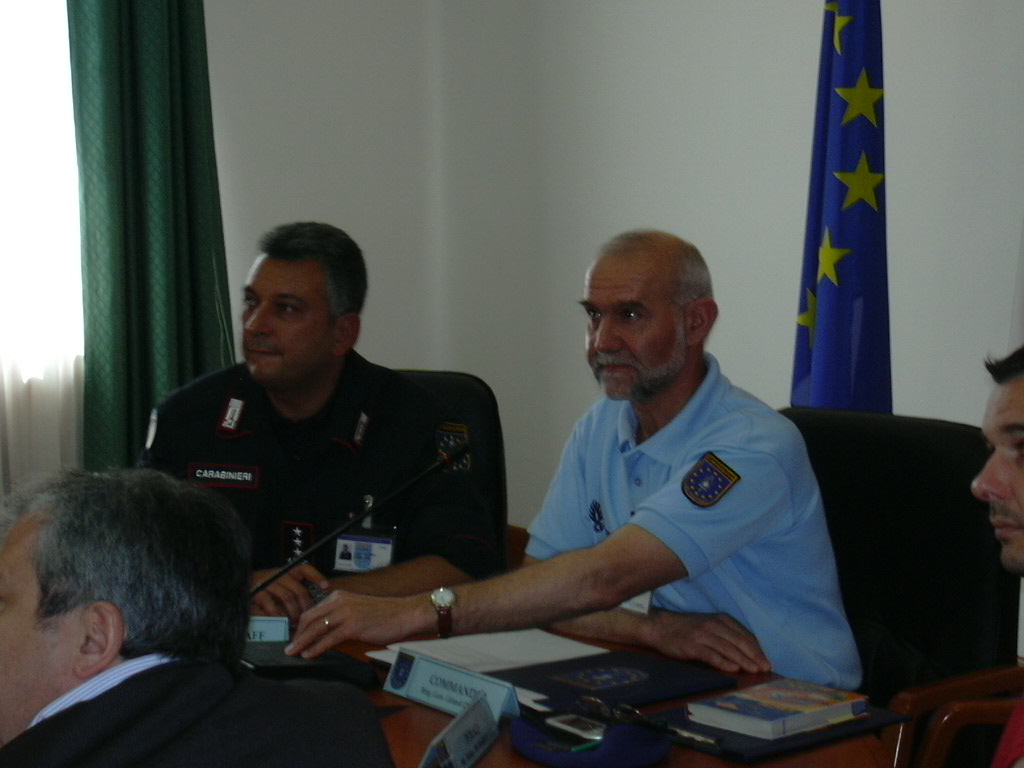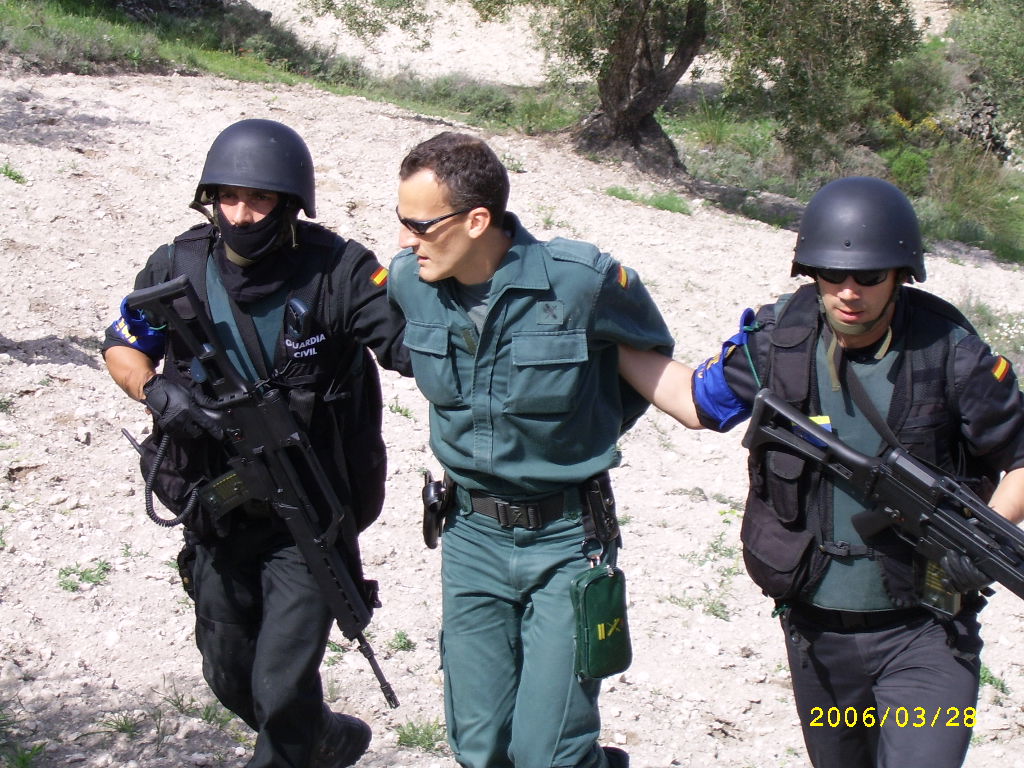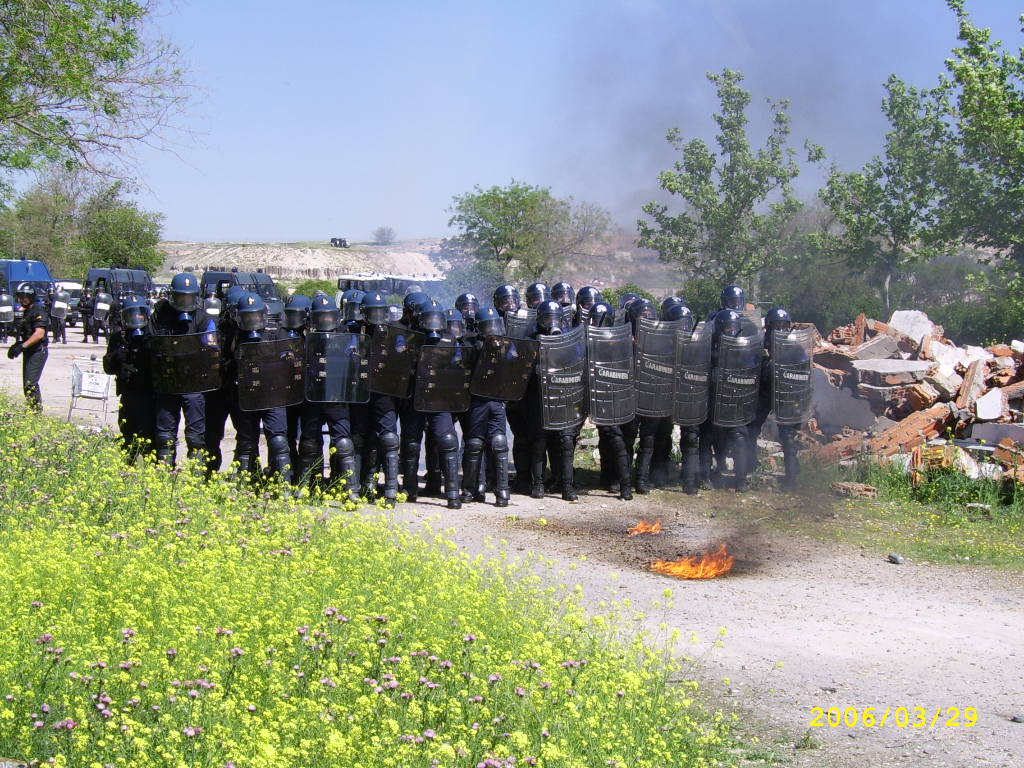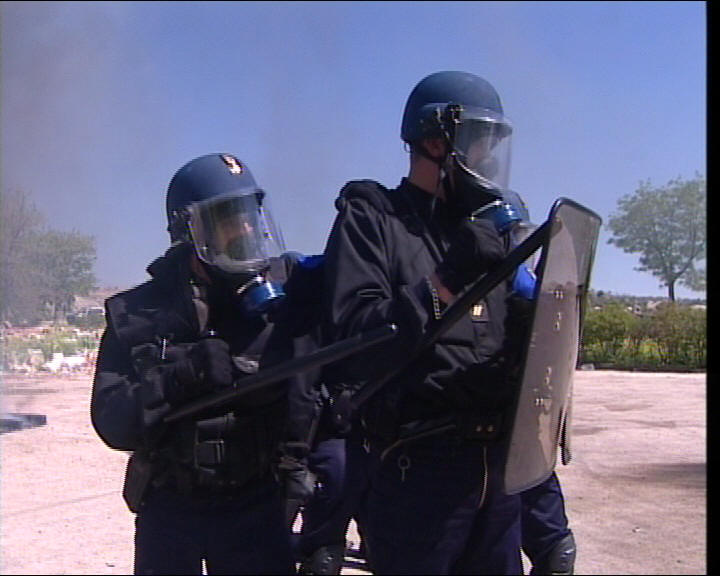Bruges Group Blog
EU Militia on British Streets?
However, let us consider the matter more closely.
The EU's plan to eventually morph into a single European State was proclaimed openly by the founders, and even later by the likes of Helmut Kohl, who described the EU plan as 'One country called Europe.' That this is their ultimate aim is evidenced by the adoption of a single currency, and, as is now widely recognised, by the formation of an EU army under centralised command. Romano Prodi, when President of the Commission, exclaimed, 'We now have the coinage, we must have the sword.'
Indeed the right to mint coin has always been an exclusive prerogative of sovereign states.
Likewise, the use of violent force on the bodies of citizens, such as seizing them and locking them up, is a crime if done by anyone else, but legal if done by the State under its criminal laws.
In 1997, as a comparative jurist, I was invited by the EU Commission to attend a seminar in Spain where they unveiled their 'Corpus Juris' project for a single criminal code for all Europe. This would abolish our Magna Carta heritage - trial by jury, Habeas Corpus, no double jeopardy. It would establish a European Public Prosecutor with his Delegates in each member state, and place national public prosecutors under a 'duty to assist him.' I published my report in Bill Cash's European Journal. Subsequently, the British co-author of Corpus Juris, Cambridge University Professor John Spencer, publicly named, blamed, and (he hoped) shamed me as the person chiefly responsible for its rejection by the government! Since then it has been put on one side, but not abandoned.
Criminal law is not just about catching criminals. It is the handle regulating how a State can use brute force on the citizens, including for political purposes.
Around 12 years ago, the EU set up the European Gendarmerie Force, comprising the lethally-armed paramilitary riot-police forces of five, now eight, EU member States. Gendarmes from each of these States are training side by side in barracks in Vicenza, Northern Italy, to forge a single EU force, controlled from Brussels. Details are on their own website: http://www.eurogendfor.org
Police in Britain have very different traditions from those on the continent. Ours have civilian status, are unarmed, locally recruited, locally commanded and deployed and tasked primarily with detecting and preventing crime.
However, in the Napoleonic tradition prevalent in mainland Europe, police have military status, are all lethally armed at all times, recruited and deployed nationally, commanded centrally and tasked primarily with keeping public order – crowd control. One example of their use was seen in Catalonia last year when Madrid sent Spain's Guardia Civil to physically assault peaceful voters in the streets to discourage them from voting in their independence referendum. Several hundred were reported injured.
That rabid reaction by the Spanish State against its own citizens is indicative of how a future European State would treat any of its 'provinces' whose citizens wished to regain their national independence. The Guardia Civil are the Spanish component of the Eurogendarmerie.
Brits will say, 'Of course this could never happen here because, after all, this is Britain.'
But can we be so sure?
The Eurogendarmerie is based on the Treaty of Velsen, signed by the participating States. Article 6.3 of this Treaty says that it may be deployed in another State 'with its consent.'
Would any British government ever give that consent?
The previous Labour government was asked by a UKIP MP and a UKIP peer if they ever would give such consent. A straight answer was not given.
Again, in June 2012, Dominic Raab MP tabled the same question to the then Home Secretary, now Prime Minister Theresa May. Here is the exchange, from Hansard (written answers for 11/06/2012 Criminal Proceedings EU Law):
'Mr Raab: To ask the Secretary of State for the Home Department with reference to EU Council Framework Decision 2008/675/JHA, in what circumstances she envisages that the UK would request special intervention units from other EU member states to operate on UK soil. (110125)
James Brokenshire (Home Office Minister at the time): The United Kingdom's response to any incident will be individually tailored to the nature and scale of that incident. Should we identify the need to seek the support of our allies in managing a crisis situation, we would of course do so.' (emphasis added)
I quoted this exchange in my submission to the House of Lords for the debate on the EU criminal law opt-outs in 2013 http://campaignforanindependentbritain.org.uk/wp-content/uploads/2017/06/SeriousRisks.pdf I then commented:
'The government should be warned that with this attitude it is recklessly playing with fire. The "special intervention units from other EU member states" that "of course" they would ask "to operate on UK soil" would be the very self-same units that make up the European Gendarmerie Force.
Unless we exercise the opt-outs now - and keep them - we will be "subject to the jurisdiction of the European Court of Justice, and the enforcement powers of the Commission." These powers could at some stage go beyond the power of fining non-compliant states, and could include command of the Eurogendarmerie, at present reporting to the Council of the Ministers of the participating states (CIMIN). The Commission could see an increase in the array of "enforcement powers" at its disposal, to include Europol and the Eurogendarmerie.
The point is that, once the armed paramilitary Eurogendarmerie are inside the country, no British government can ever order them to leave, for they will only obey orders from their masters in Brussels. For the people of Britain it will feel like being under military occupation by a foreign power, imposing alien laws on us.
Furthermore, at that point British participation in the EU project will no longer be voluntary. Our sovereign right to withdraw, never previously denied by any British participants in the debate, will have gone.'
In the past, it has been largely British foot-dragging and our demands for various opt-outs and rebates, that has held back the completion of the EU project to full statehood.
If the referendum vote had gone the other way or, as the remainers wish, if the majority decision can somehow be reversed, then Brussels will take it as a total surrender by Britain to the EU State project - lock, stock and barrel. People won't then be asked, 'What sort of EU do you wish to belong to?' It will be full steam ahead – the Euro, fiscal powers, an EU government, army, criminal law and a centrally commanded European Gendarmerie - on the streets of all the member states, including ours.
We have every reason not to trust Theresa May. Her government has said it wants a 'Security Treaty' with the EU. She specifically wants us to be bound irrevocably to Europol and the European Arrest Warrant - even after 'Brexit.'
Contact us
246 Linen Hall, 162-168 Regent Street
London W1B 5TB
Director : Robert Oulds MA, FRSA
Founder Chairman : Lord Harris of High Cross








